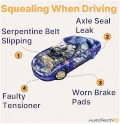
A "burnt plastic smell from car" can have various causes. The burning plastic smell typically means a component is heating up too much. The odor might also come with a burning rubber smell, depending on the cause.
Electrical issues
- Overheating or malfunctioning electrical components: This could include wiring, fuses, switches, or the alternator. Overheating can melt plastic insulation, leading to a burning smell. In some cases, this car smell comes with a burning oil smell since there could be an oil leak.
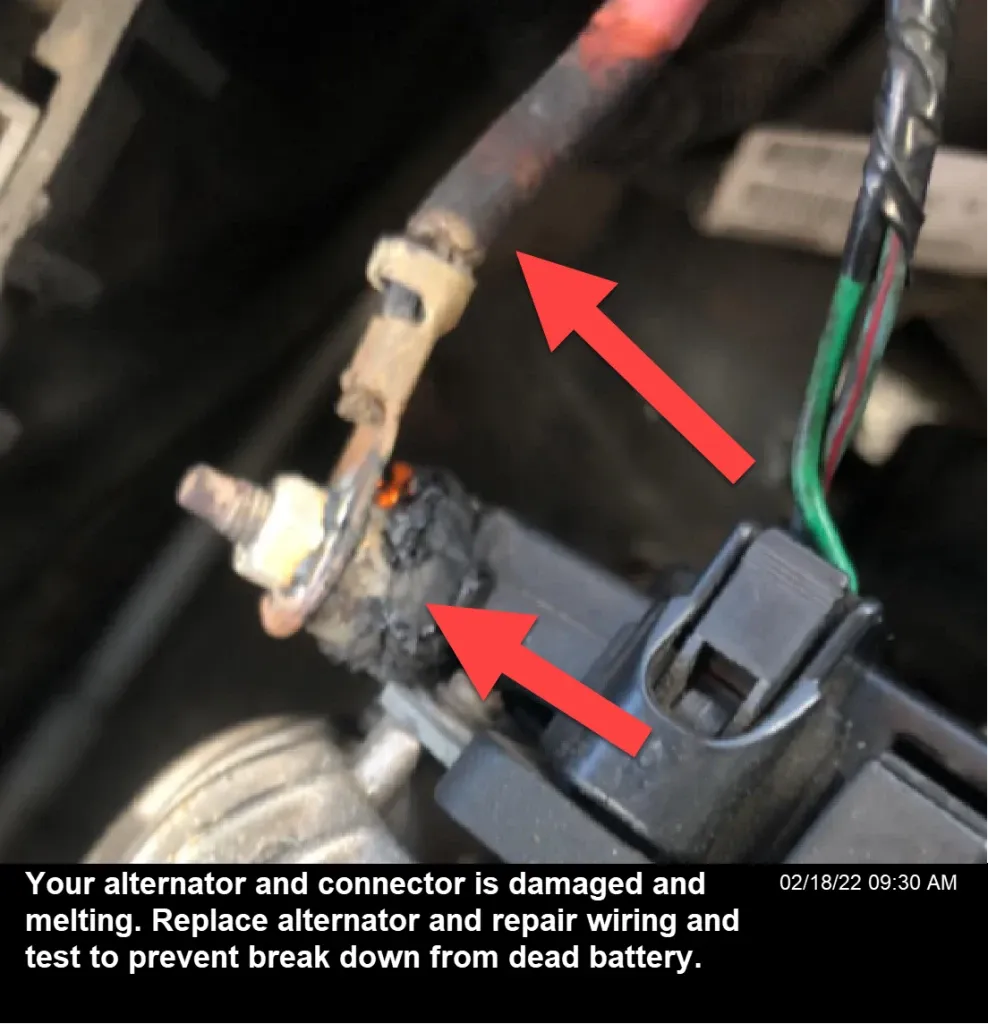
- Short circuit: A short circuit can occur when wires touch or become frayed, causing them to overheat and burn, causing strong car smells.
- Blown fuse: A blown fuse can overload other components and melt the fuse box cover, leading to overheating and burning.
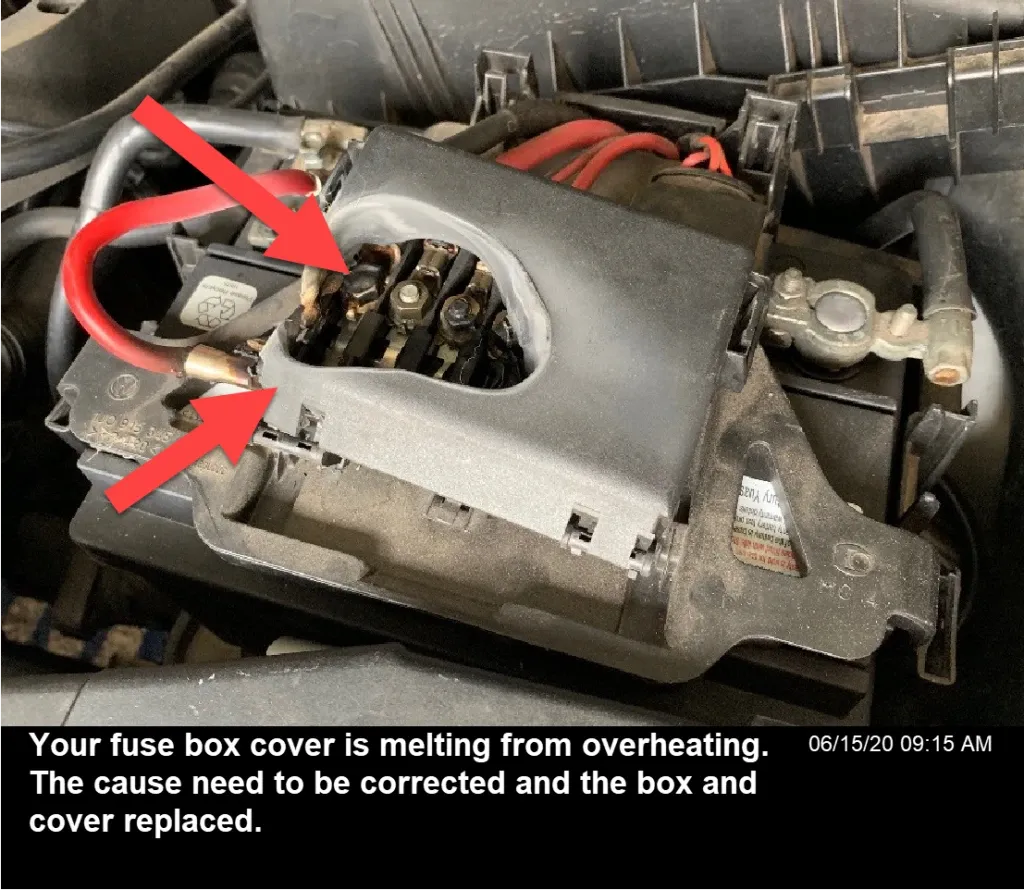
Mechanical issues
- Worn-out brake pads: When brake pads wear down, they can emit a burning smell, especially when stopping or driving downhill. You'll often notice grinding noises in this case also.
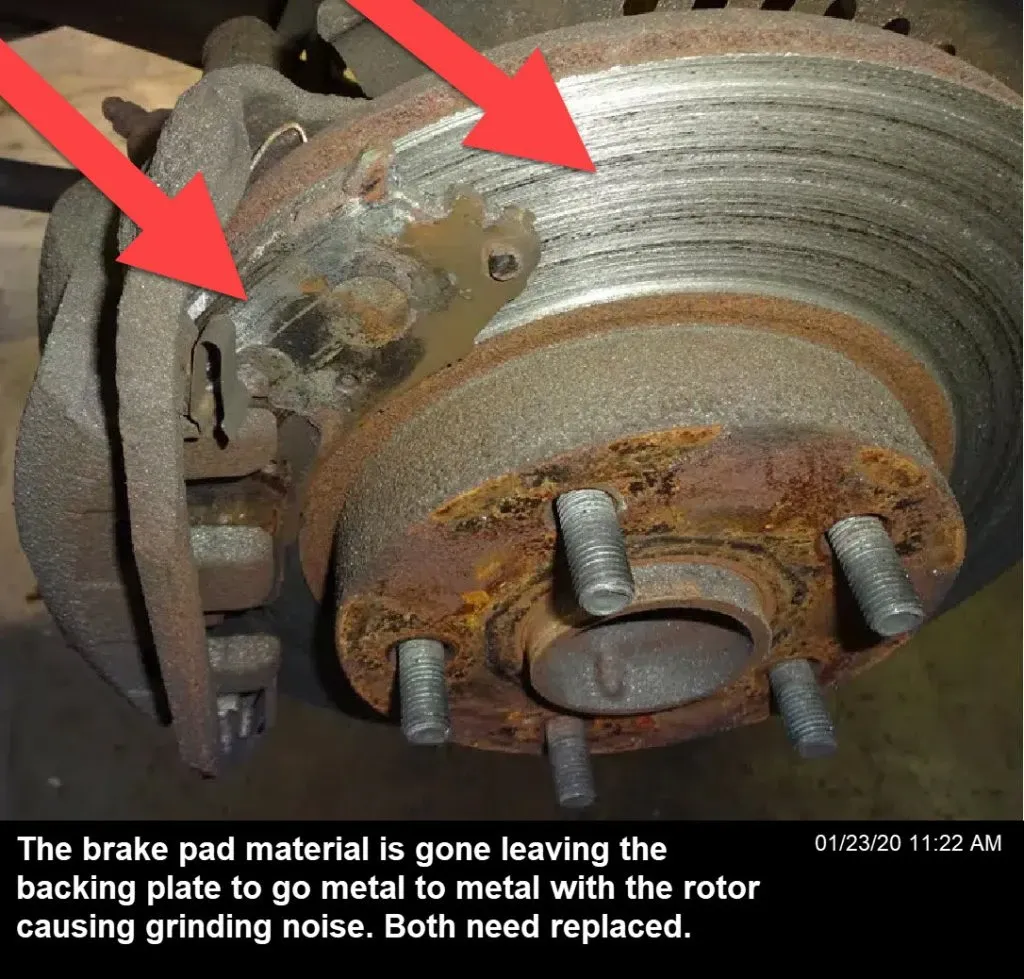
- Clutch burning: If you're riding the transmission clutch excessively, it can overheat and produce a burning smell. You'll see this more often on manual transmission vehicles.
- Overheating engine: An overheating engine can cause various components to melt or burn, including engine oil, leading to a burnt plastic smell. In some cases, even the exhaust pipe might strongly release the odor accompanied by a rotten egg smell. Additionally, leaking engine oil might burn on hot surfaces and also cause a burning oil smell. Still, excess oil dripping could be easily spotted under the car.
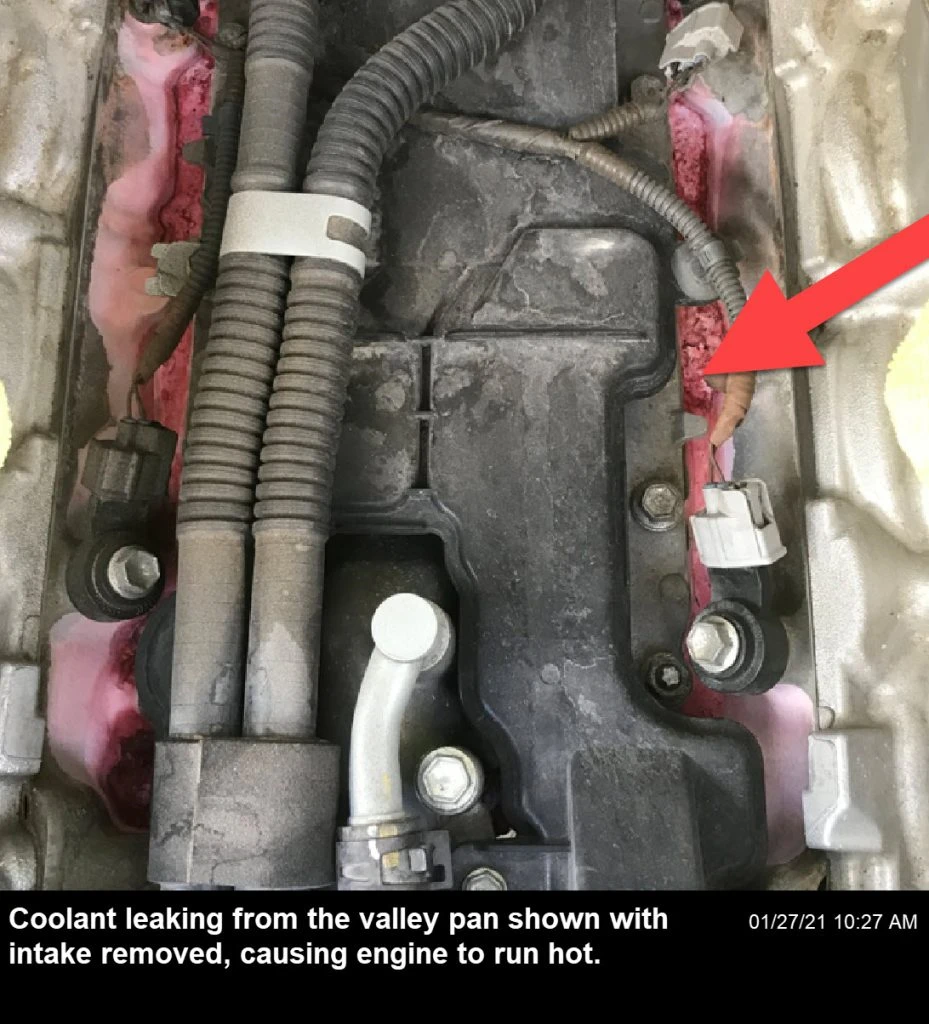
Other causes
- Debris stuck in the engine bay: Plastic bags, leaves, or other debris can get stuck in the engine bay and melt when the engine heats up. A plastic bag can burn to the point it becomes charcoal-like on the exhaust.
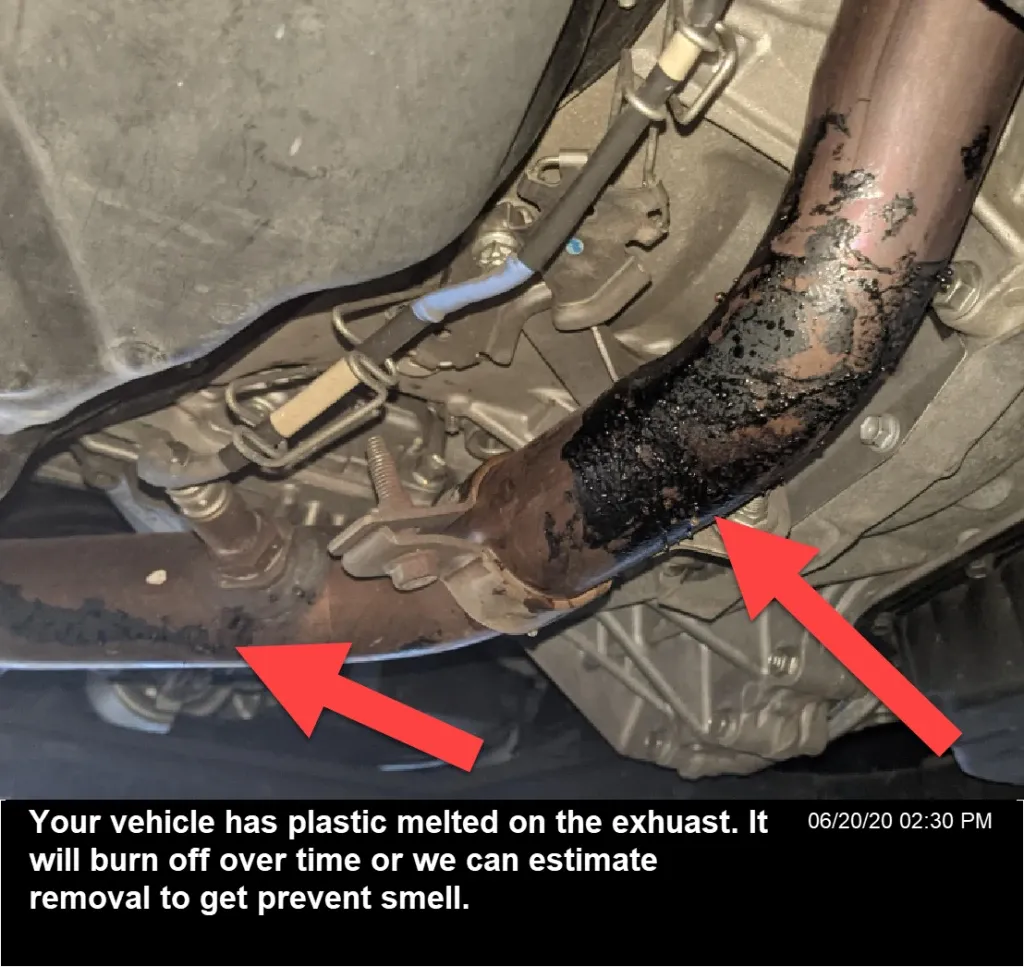
- Rodent damage: Rodents love to chew on wires and other plastic parts, which can cause them to overheat and burn.
- Clogged heater: A clogged heater can cause the plastic components inside to overheat and burn.
Steps you can take to fix the problem
Stop driving immediately: A burnt plastic smell is a sign that something is wrong, and it's important to stop driving to avoid further damage.
Look for any visible signs of damage: Check for melted plastic, frayed wires, or smoke coming from the engine bay.
Check your dashboard for any warning lights: Some cars will have warning lights that indicate electrical problems or overheating.
It's best to take your car to a professional as soon as possible. Call an auto repair shop in your area and describe your observations on the phone. Various burning smells can develop into serious issues. Make sure you can drive it to the shop so they will be able to diagnose the problem and recommend the best course of action.
- Do not ignore a burnt plastic smell, even if it seems to go away. It's a sign that something is wrong, and it could lead to a more serious problem if not addressed.
